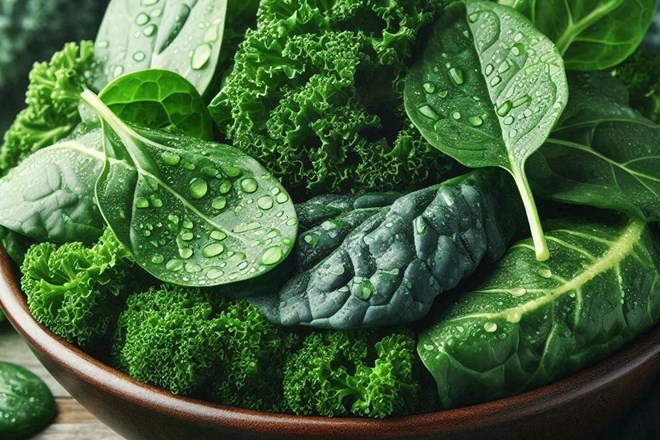
Often labeled as superfoods, kale and spinach are among the healthiest and most nutrient-dense foods you can eat.
These cruciferous vegetables are rich in antioxidants, which protect against heart disease and cancer, and are also high in fiber, vitamin C, and calcium…
Spinach and kale contain a substance called oxalic acid, which can bind to calcium and other minerals in the body and create insoluble crystals, says Neha Sahaya, a renowned Indian nutritionist and health consultant (expert in the field of gut health and weight loss).
When eaten raw, oxalic acid is not broken down as it is when cooked and can interfere with the absorption of calcium, iron and other important minerals in the body.
Additionally, eating these two vegetables raw can increase the risk of kidney stones, irritable bowel syndrome, and bloating. For those who already suffer from pain, illness, and inflammation, eating too much spinach can worsen symptoms.
Additionally, Sahaya points out that spinach and kale are good sources of vitamin K, but can react with anticoagulants, which are used to target blood clots. It can also affect other blood-clotting factors found in the blood.
Sahaya recommends cooking spinach and kale to help kill bacteria and make them safer to consume.
“Although spinach and kale can be eaten raw in small amounts, you should still cook them. Cooking also helps break down the oxalic acid, making it easier for your body to absorb the nutrients in spinach,” says Sahaya.
People with stomach or intestinal health problems should avoid eating raw spinach and kale as it can lead to acidity or stomach pain. In fact, eating any leafy green vegetable can lead to these side effects. It is best to try it before eating it in full proportion and check if it causes nausea or bloating.
Source: https://laodong.vn/dinh-duong-am-thuc/an-cai-xoan-va-rau-bina-song-co-thuc-su-gay-hai-1367738.ldo





















![[Photo] National Assembly Chairman attends the seminar "Building and operating an international financial center and recommendations for Vietnam"](https://vphoto.vietnam.vn/thumb/1200x675/vietnam/resource/IMAGE/2025/7/28/76393436936e457db31ec84433289f72)












































































Comment (0)